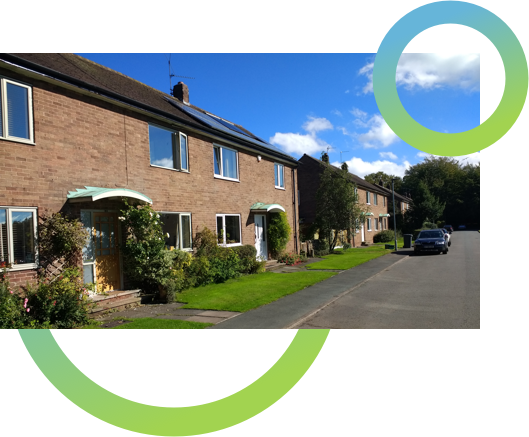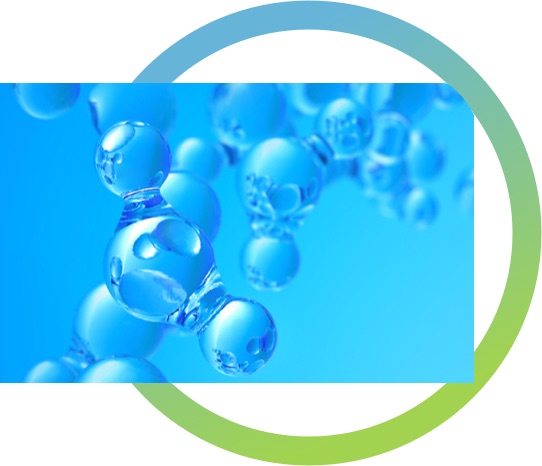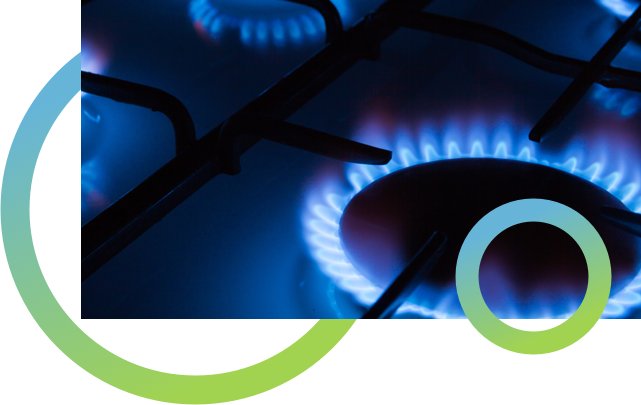Before the UK Health and Safety Executive gave permission for the HyDeploy live demonstration, they had to be satisfied that the blended gas would not present increased risks to homeowners or building users. So they reviewed the safety case for the blend of hydrogen and natural gas and approved it as being as safe as the natural gas we all currently use.
To make sure all safety standards are maintained throughout the Keele demonstration, Cadent have specially trained over 90 of their engineers to respond in the unlikely event of any calls from customers who think they smell gas. Some equipment for hydrogen blending is slightly different from natural gas so engineers have been trained to respond swiftly and efficiently as they would to any other call. The same will happen for the North East demonstration with NGN.

The evidence gained from HyDeploy will help us to understand more about how hydrogen can be used as a safe and low carbon option in homes and businesses to reduce CO2 emissions from heat.
At Keele, each home and building in the pilot area was offered the opportunity for a standard gas safety check of their appliances and installation. Over 90% of the homes consented to this check and after a safety assessment, received a Gas Safety Certificate. All of the university owned homes and buildings in the area were also safety checked.
At the time of the safety assessment in homes, different blends of hydrogen and natural gas were also tested on appliances to gather evidence about the operation of appliances with these. This was provided to the HSE along with results from laboratory testing of gas appliances, gas pipes and other materials with hydrogen.
A further standard annual gas safety check for homes and buildings in the trial area is offered ahead of the live demonstration. The HSE Science Division, a project partner for HyDeploy, will continue to oversee the safety aspects of the project.
For HyDeploy North East, NGN are encouraging all customers in the demonstration area to book a free Gas Safe check to make sure their appliances are in good working order and allow information to be gathered about the appliances that will receive the 20% blend.
About hydrogen
Hydrogen can be used for zero carbon energy because when it is burned it doesn’t produce carbon dioxide (CO2), just water and heat.
Hydrogen is an abundant chemical element. It does not occur naturally as a gas in its own right on our planet; it is always combined with other elements such as oxygen to form water or H2O. So hydrogen must be separated from the other elements to make it into an energy carrier. For HyDeploy we are using electrolysis to separate hydrogen from oxygen in water.

Using hydrogen safely

Hydrogen, like other fuels, is flammable. As with other fuels, such as natural gas and petrol, if proper guidelines are followed, hydrogen can be used safely.
Hydrogen has already been used in industrial applications for many years. The UK Health & Safety Laboratory has been involved in research into hydrogen safety for over a decade; studying how it can be used safely:
- as a transport fuel,
- in small scale stationary applications,
- in gas turbines,
- in pipeline distribution, and
- in the nuclear industry.
Hydrogen on the gas network in Europe
Across Europe permitted hydrogen levels in the gas supply vary, to a maximum of 12%. Hydrogen and natural gas blends have also previously been used safely in Europe.
Netherlands
A project in Amerland in the Netherlands was safely undertaken to inject hydrogen at up to 20% volume into their natural gas grid for use by domestic consumers.
Germany
A trial was successfully carried out by E.ON Technologies in the Klanxbüll/Neukirchen region of Germany where around 170 gas customers were supplied with a natural gas blend containing up to 10% volume hydrogen.
France
The GRHYD project is currently underway in France. It will be injecting up to 20% vol. hydrogen into natural gas to deliver to around 100 domestic customers and a hospital.
These trials are all different in a number of respects from each other and from HyDeploy. HyDeploy is focused on using an existing gas network and one designed to UK specifications.
If you would like further details of these trials please contact the project team at info@hydeploy.co.uk
